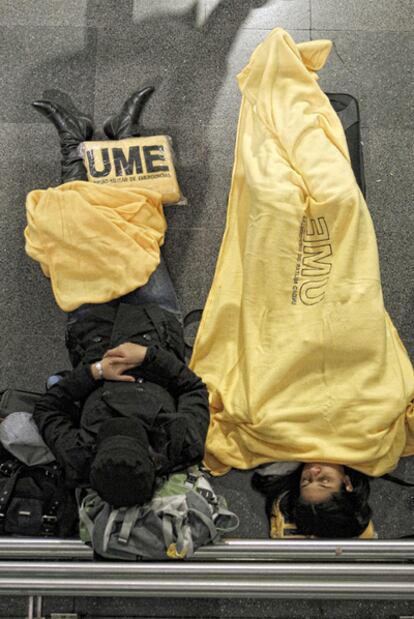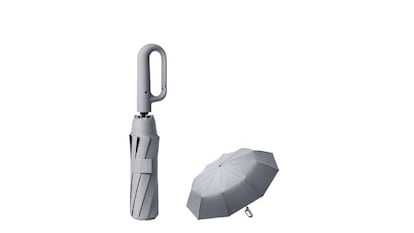Airports back on track; controllers evade military law
Courts pursue public prosecutions for tower workers who joined wildcat strike
Spanish airports continued their return to normal operational levels on Monday following a mass walkout by air traffic controllers over the weekend. Airport authority AENA said it had programmed 4,053 flights, a normal day's volume the body said, although a lingering hangover from the weekend's disruption produced 40 cancellations. Of 291 controllers scheduled to work on Monday only 11 were absent, a figure AENA again termed normal.
Spain's controllers staged a massive covert strike on Friday but have found scant sympathy for their cause. In a written proposal for a new collective agreement presented to the secretary of state for transport, Isaías Táboas, the USCA controllers' union asked for 250 hours' less work per year for the same wage. But public opinion has gathered behind the government's decision invoke a 15-day state of alert.
"We approved the government's proposal for the application of the Royal Decree last Thursday," opposition Popular Party leader Mariano Rajoy said yesterday. "The government will, though, have to explain to Spaniards how we came to such a lamentable situation."
The public prosecutor said it will not pursue controllers for the charge of breaking military law as the offenses took place before the army was brought in.
AENA is to take 442 of its controllers to task. Charges of breaking the Air Traffic Criminal Law will be pursued "on a case-by-case" basis by the courts.

Tu suscripción se está usando en otro dispositivo
¿Quieres añadir otro usuario a tu suscripción?
Si continúas leyendo en este dispositivo, no se podrá leer en el otro.
FlechaTu suscripción se está usando en otro dispositivo y solo puedes acceder a EL PAÍS desde un dispositivo a la vez.
Si quieres compartir tu cuenta, cambia tu suscripción a la modalidad Premium, así podrás añadir otro usuario. Cada uno accederá con su propia cuenta de email, lo que os permitirá personalizar vuestra experiencia en EL PAÍS.
¿Tienes una suscripción de empresa? Accede aquí para contratar más cuentas.
En el caso de no saber quién está usando tu cuenta, te recomendamos cambiar tu contraseña aquí.
Si decides continuar compartiendo tu cuenta, este mensaje se mostrará en tu dispositivo y en el de la otra persona que está usando tu cuenta de forma indefinida, afectando a tu experiencia de lectura. Puedes consultar aquí los términos y condiciones de la suscripción digital.




























































